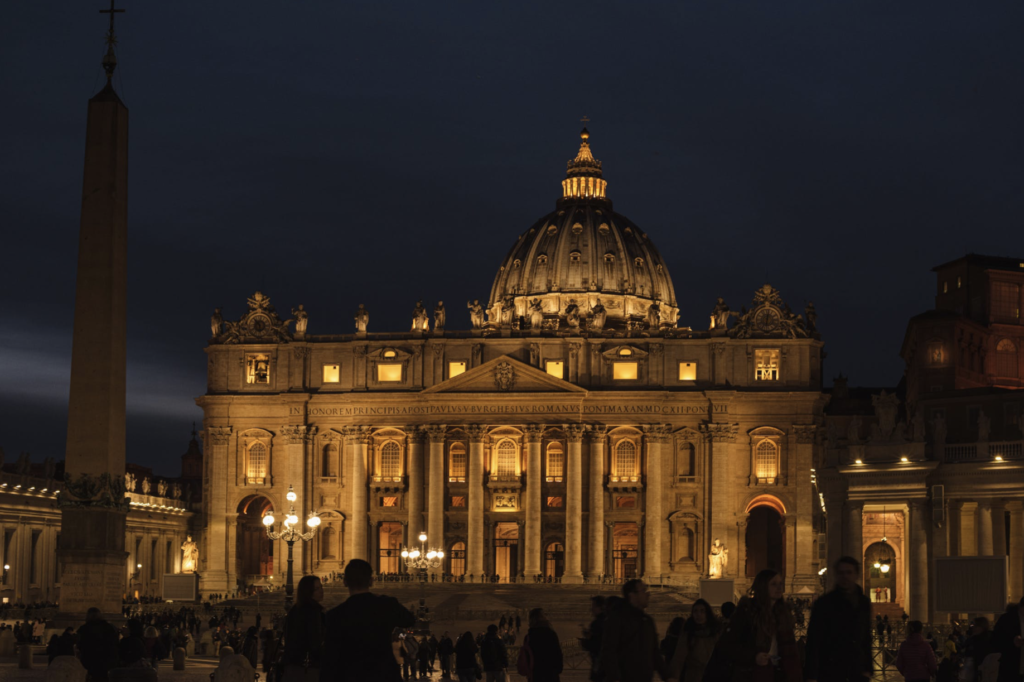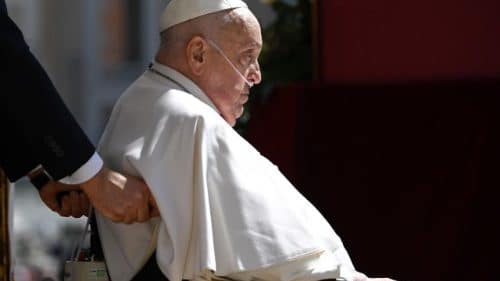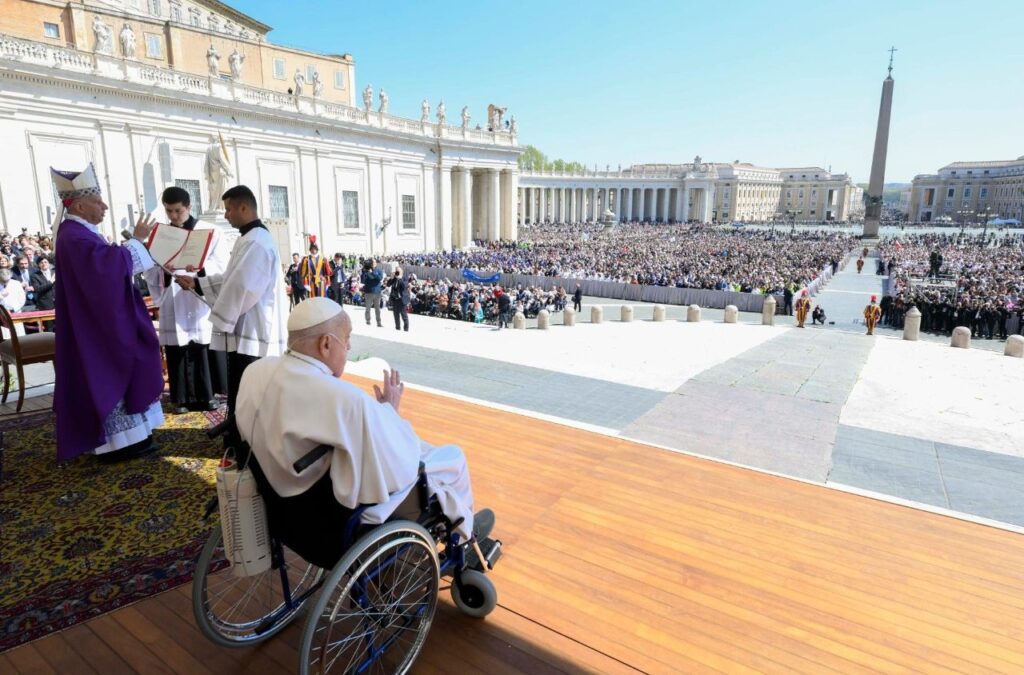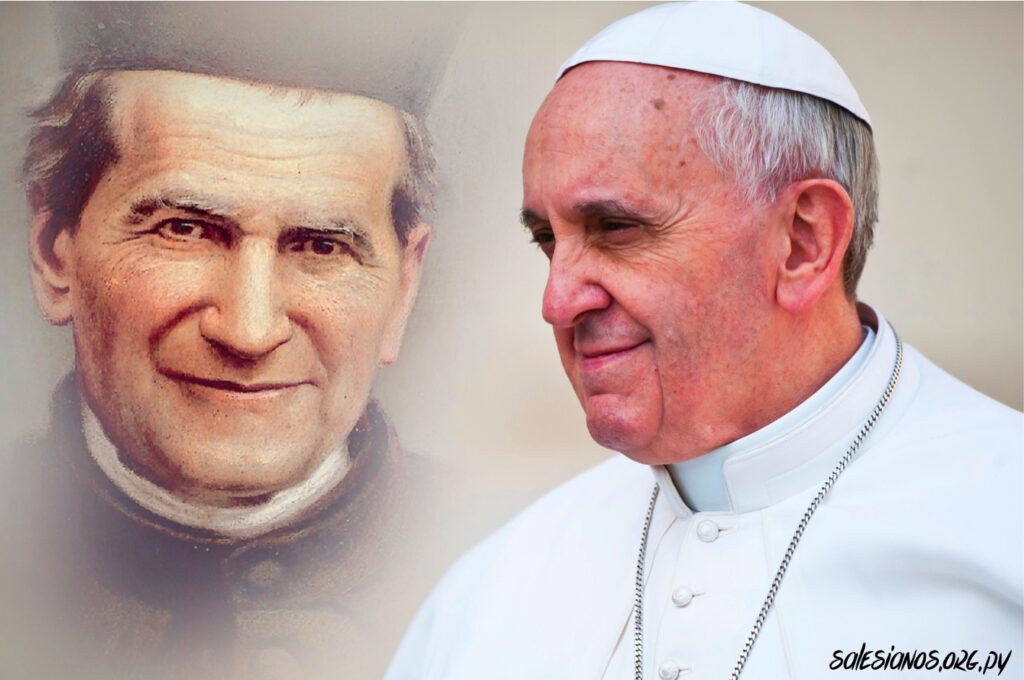“The way of synodality is the way God expects of the Church “
60th anniversary of the Second Vatican Ecumenical Council

The message of the General Secretariat of the Synod on the occasion of the 60th anniversary of the opening of the Second Vatican Ecumenical Council, addressed to bishops, priests and deacons, consecrated persons, and lay faithful, in which Pope Francis recalled that, after all, “communion, participation and mission” are keywords, eminently conciliar.
The 60th anniversary of the opening of the Second Vatican Council is a moment of particular grace also for the Synod, which represents a fruit of that ecumenical assembly, indeed one of its “most precious legacies” (Francis, Apostolic Constitution Episcopalis Communio, Sept. 15, 2018, 1). The Synodus Episoporum, in fact, was instituted by St. Paul VI at the beginning of the fourth and final period of the Council (Sept. 15, 1965), responding to requests made by many council fathers.
The purpose of the Synod was and remains to prolong, in the life and mission of the Church, the spirit of the Second Vatican Council, as well as to foster in the People of God the living appropriation of its teaching, in the awareness that that Council represented “the great grace from which the Church has benefited in the 20th century” (John Paul II, Apostolic Letter Novo millennio ineunte, Jan. 6, 2001, 57). This task is far from being completed, since the reception of the conciliar magisterium is an ongoing process; in some respects, it is still in its infancy.
Throughout these decades, the Synod has constantly placed itself at the service of the Council, contributing for its part to renewing the face of the Church, in ever deeper fidelity to Sacred Scripture and living Tradition and in attentive listening to the signs of the times. Its Assemblies – Ordinary General, Extraordinary General and Special – have been permeated, in its own way, by the life-giving sustenance provided by the Council.
From time to time, these Assemblies have deepened this same teaching, disclosed its potential in the face of new scenarios, and fostered inculturation among peoples. The synodal process currently underway, dedicated to “Synodality in the Life and Mission of the Church,” is also within the Council’s wake. The concept of “Synodality” is found throughout the Council, even though this term (only recently coined) is not found expressly in the documents of the ecumenical assembly. The magna charta of Synod 2021-2023 is the Council’s doctrine on the Church, particularly its theology of the People of God, a People whose “condition is the dignity and freedom of the children of God, in
whose heart the Holy Spirit dwells as in a temple” (Lumen Gentium 9).
After all, the three terms “communion, participation and mission” which Pope Francis included in the very title of the synodal journey as keywords, are eminently conciliar words. The Church that we are called to dream and build is a community of women and men drawn together in communion by the one faith, our common Baptism and the same Eucharist, in the image of God the Trinity: women and men who together, in the diversity of ministries and charisms received, actively participate in the establishment of the Kingdom of God, with the missionary impetus of bringing to all the joyful witness of Christ, the only Savior of the world.
Even before the Church embarked on this synodal journey, Benedict XVI had already affirmed that the “synodal dimension is constitutive of the Church: it consists of a coming together of every people and culture in order that they become one in Christ and walk together, following him, who said: “I am the way, and the truth, and the life” (Jn 14: 6)” (Angelus, Oct. 5, 2008). In a similar way, commemorating the 50th anniversary of the Synod’s establishment, Pope Francis asserted that the path of synodality, “a constitutive dimension of the Church” and that it “is the path that God expects from the Church of the third millennium” (Oct. 17, 2015).
Vatican City, 10 October 2022
One year from the opening of the 2021-2023 Synodal Process
Related

Pope Francis silently prays before St. Pius X in the heart of the Vatican
Exaudi Staff
10 April, 2025
1 min

Pope Francis’ Catechesis: The Rich Man. Jesus “Looked at Him with Love”
Exaudi Staff
09 April, 2025
4 min

Francis is recovering: progressing progressively
Exaudi Staff
08 April, 2025
2 min

The Pope to the Salesians: “Serve others without holding anything back”
Irene Vargas
07 April, 2025
2 min
 (EN)
(EN)
 (ES)
(ES)
 (IT)
(IT)

